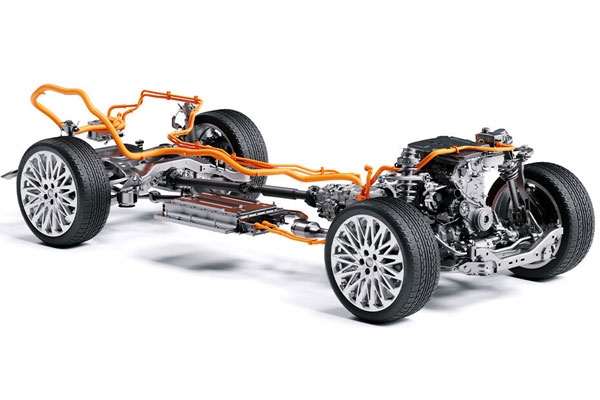
(Image source from: Hyundai.com)
Hyundai Motor Company has unveiled an innovative hybrid technology known as the TMED-II system. This advancement enhances fuel economy by 45 percent and raises power output by 19 percent relative to its predecessor, representing a significant leap in hybrid technology. Additionally, it is adaptable for various types of vehicles, with its debut set to occur in the Palisade featuring a 2.5-liter turbo petrol engine.
The TMED-II system consists of two electric motors, designated as P1 and P2. P1 is responsible for initiating the engine and recharging the battery, whereas P2 powers the vehicle and aids in braking. This configuration not only enhances performance but also improves fuel efficiency, resulting in a ride that is both quieter and more refined.
Hyundai's latest hybrid system operates in conjunction with a new 2.5-liter turbo petrol engine, generating 334 PS and 460 Nm of torque. This combination achieves a 19% uplift in power and a 9% increase in torque in comparison to the earlier 2.5-liter turbo engine. The TMED-II system not only boosts performance but also integrates advanced technologies such as intelligent regenerative braking and Vehicle-to-Load (V2L) features, thereby enhancing the appeal of Hyundai's hybrid offerings.
Expanding its hybrid range, Hyundai plans to grow its lineup from seven to fourteen models, incorporating the TMED-II technology across various segments, including compact vehicles and luxury options under the Genesis label. The company is targeting global sales of 1.33 million hybrid units by 2028, marking a 40 percent increase from earlier projections.
To cater to regional preferences, especially in North America, Hyundai will manufacture hybrid models at its facility in Georgia, intending to elevate hybrid sales to 690,000 units by 2030. Furthermore, the sales strategy will be tailored to reflect the distinct demands of each market, including Korea and Europe. The TMED-II system enables Hyundai to adapt to various consumer requirements and comply with international regulations.
(Video Source: Hyundai Motor Group)







